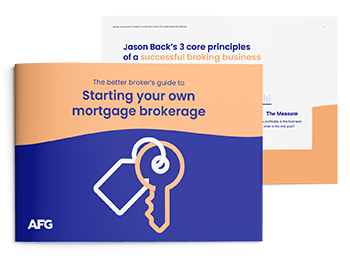You’ve done the hard yards and saved a deposit, hunted down the right property and bartered a better price. The Sold sticker is all but slapped on the for sale sign. Then you realise there’s more than the agreed price to consider. If a car has on-road costs, then you might say property comes with on-street costs. Here’s a snapshot of what additional expenses you can expect when you buy a home.
Stamp duty
Next to your deposit, this is usually the biggest outlay. Stamp duty is a tax charged by state and territory governments on the purchase of property. The amount of duty charged will depend on the state government’s formula and the sale price. There are usually concessions for first-home buyers, ranging from discounts to extended payment periods. A good rule of thumb is to tuck away an extra five per cent on your deposit to cover stamp duty, plus some additional purchase costs. You should also check whether your state charges mortgage stamp duty on your loan amount.
Legal fees
You will need a solicitor or conveyancer to handle the legal transfer of the property title and make the necessary searches. Legal fees can vary widely. You are entitled to a quote up front, and should always ask for one. The more complex the transaction, the higher the fee. But don’t be tempted to cut corners. If there’s something you want to investigate about the property you are buying – compliance with development approvals, a heritage listing, potential flood levels, a shared driveway, proposed road corridors or rezoning (just to name a few) – this is your chance before your cooling-off period ends. Just remember your solicitor has probably not seen the property. While most will undertake thorough searches on your behalf, they won’t know your plans for the property. Speak up if there’s something specific you want to know.
Lending fees
Your loan itself may come with additional costs, including application fees, set-up fees and a property valuation. Depending on the type of loan, there may also be monthly account fees.
Lenders Mortgage Insurance (LMI)
Banks and credit unions will require you to take out this rather costly cover if they are lending you more than 80 per cent of the value of the property.
However, this insurance protects the lender, not you. It’s a safety net that covers any losses the lender may incur in the event of a mortgagee sale.
Mortgage registration fee
This is a charge by the state or territory land titles office to register the lender’s mortgage on the property’s title record. It’s paid by the borrower
and runs to around $125.
Pest and building inspections
Often lumped in together, these inspections provide very different information and are worth every cent. Don’t think you need one or the other. You need both, and each should be carried out by a suitably qualified and licensed expert. Often a building inspector is also qualified for pest inspections. A pest inspection costs about $100-150 and primarily checks for signs of damage caused by white-ants (termites) and borers. It can also shed light on rodent and cockroach infestations, which shouldn’t affect the structure of a property but may give you some bargaining chips on the price! A building inspection, at about $300, will report on the condition and structural integrity of the home, internally and externally, and flag any potential issues. Property sales are generally subject to building and pest reports, with the exception of auctions. If buying a property at auction, get these inspections beforehand.
Home insurance
Your home is likely to be your biggest ever purchase, so it’s well worth protecting with insurance. There are a number of factors that will affect the size of your home insurance premium, including location, the home’s age and building material, the rebuilding value and the size of the excess you choose. Your lender will require you to take out and show proof of home building insurance to cover the estimated amount they are lending you towards the building component of the property. However, this amount may leave you underinsured and, if the worst happens and you lose your home to a fire or severe weather, out of pocket.
Most insurers offer home building calculators online so you can estimate your sum insured to replace your entire home. Make sure you also factor in fences, swimming pools and any expensive building materials or fittings. Although not required by lenders, you should also take out contents insurance for your household items.









